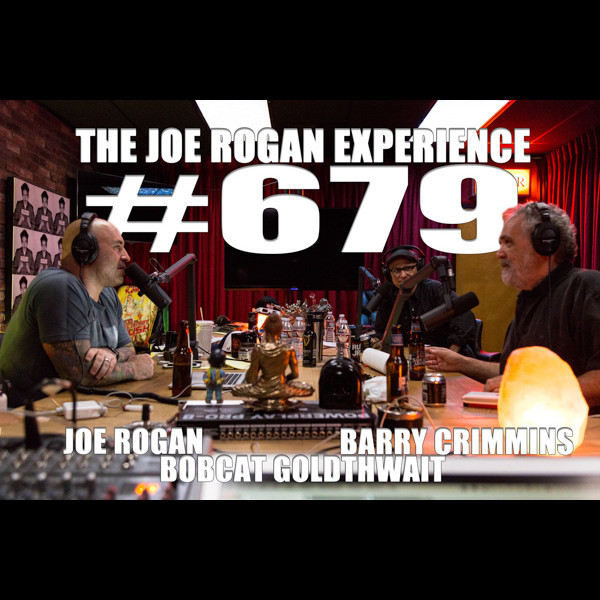8/6/2015
“`html
This podcast features a candid conversation between comedian Joe Rogan and two stand-up comedy legends: Barry Crimmins and Bobcat Goldthwait. The episode revolves heavily around the documentary film “Call Me Lucky,” which chronicles Crimmins’ life and traumatic childhood experiences. Goldthwait, who directed the film, provides insight into the creative process and the challenges of bringing such a sensitive story to the screen. The podcast delves into profound themes of resilience, social justice, and the healing power of humor.
Here’s a breakdown of some of the major topics covered in the podcast, along with a concise summary of each:
Comedic Roots and the Boston Comedy Scene
- The Ding Ho: The legendary Boston comedy club that served as a breeding ground for numerous talented comics. Crimmins’ establishment of this space and his commitment to fostering a supportive community are highlighted.
- The Importance of Strong Links: The podcast emphasizes the crucial role of strong links in a comedy community, arguing that the strongest member often sets the standards for the whole scene. This ties into Crimmins’ influence and the legacy he created at the Ding Ho.
- Boston’s Demanding Comedy Environment: The podcast discusses how the competitive and unforgiving nature of the Boston comedy scene honed Crimmins’ sharp wit and helped shape his distinct comedic style.
- Crimmins’ Early Stand-Up Persona: Rogan reminisces about Crimmins’ early days on stage, noting his unique presence that conveyed a sense of seriousness and conviction, even while delivering humorous material.
Barry Crimmins’ Traumatic Past and Its Impact
- Disclosing Childhood Abuse: The podcast explores Crimmins’ decision to disclose his childhood abuse during a benefit for children, a poignant moment that brought awareness to a critical issue. It delves into the emotional weight of his experience and the catharsis he found in sharing his story.
- The Power of Empathy: Goldthwait explains his strategic choice to introduce Crimmins’ trauma later in the film, emphasizing the importance of building empathy with viewers before revealing the shocking details. He wanted audiences to know Crimmins as a person before unveiling his painful past.
- The Aftermath of Disclosure: Crimmins’ experience with the child pornography investigation and his decision to expose AOL’s involvement are detailed. The podcast highlights his unwavering commitment to justice and his determination to protect children.
- Crimmins’ Journey of Healing: The podcast touches upon Crimmins’ ongoing journey of healing, focusing on the positive impact of helping others and the strength he found in overcoming adversity.
- The Importance of Breaking Silence: Crimmins’ story underscores the vital need to break silence surrounding sexual abuse and the courage it takes to speak out. The podcast emphasizes the importance of supporting survivors and creating a safer environment for children.
Bobcat Goldthwait’s Filmmaking Process and “Call Me Lucky”
- The Challenges of Documenting Trauma: The podcast delves into Goldthwait’s approach to making “Call Me Lucky,” emphasizing the difficulties of documenting Crimmins’ traumatic experiences while remaining respectful and sensitive to his journey.
- The Creative Decision to Film the Basement: Goldthwait explains his decision to film the basement where Crimmins was abused, highlighting his intention to confront the space without glorifying the trauma or giving it undue power.
- The Importance of Humor: The podcast acknowledges the role of humor in coping with trauma and how Goldthwait incorporated comedic elements into the film to balance the heavy subject matter.
- Goldthwait’s Inspiration for Making the Film: The podcast unveils the personal connection that motivated Goldthwait to make “Call Me Lucky,” emphasizing his respect for Crimmins and his desire to tell his story honestly.
Provocative and Controversial Discussions
- The Philosophy of Nambla: The podcast delves into the disturbing philosophy of Nambla, a controversial organization advocating for adult-child sexual relationships. This segment includes a discussion of the film “Powder,” which explores themes of child power and the dangers of Nambla’s ideology.
- The Role of Disney in Promoting Nambla: The podcast reveals the shocking truth that Disney greenlit and released the film “Powder,” directed by a convicted child molester who incorporated Nambla’s philosophy into the storyline.
- The Dangers of Trigger Warnings: The podcast offers a critical perspective on the overuse of trigger warnings, arguing that they can perpetuate victimhood and hinder growth and resilience.
- The Importance of Personal Accountability: Crimmins emphasizes the need for individuals to take personal responsibility for their actions and to move beyond blaming victims for their experiences. He urges listeners to break free from toxic patterns of thought and behavior.
Memorable Quotes:
- “I would show him that my personal revenge would be to behave decently towards him and even advocate for him to be in a situation, confined and segregated from any possibility being near children, where he was treated in a humane fashion.”
- “I didn’t become him. I didn’t become what I resisted. I didn’t pass along the poison.”
- “The idea that someone could do that after someone did that to them seems insanely counterintuitive. It’s like if someone is the only thing that saves you but really saves you, really is redemptive and really saves you to me.”
- “I’m not this altruistic guy. It’s like I’m saving my own life.”
- “Don’t put up with anybody who is truly being insensitive or snickering about any of this shit.”
“`
